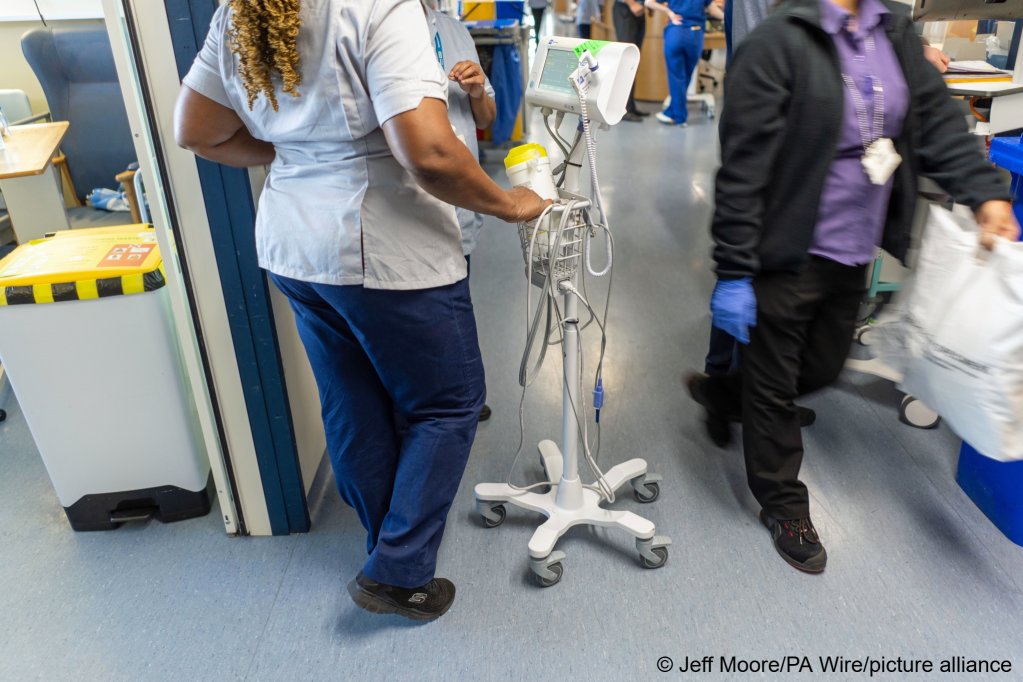The UK is planning to bring in a raft of immigration reforms, including legislation to end the recruitment of foreign workers, which in particular is likely to affect the UK's care sector. The white paper on immigration reform, however, still has to pass through both houses before it becomes law.
A set of legislative measures are to be introduced in the UK as part of the government's Immigration White Paper to cut migration to Britain.
The new rules were laid out in Parliament on Tuesday (July 1) and were based on an 82-page Immigration White Paper not only aimed at reducing numbers of immigrants, but also designed to introduce measures to clamp down on abuses of the system.
In the foreword of the White Paper, Prime Minister Keir Starmer highlighted that "(s)ince this government came to power, visa applications are down nearly 40 percent."
"But now is the time to go further and faster. To assure the British people that the experiment is over."
Read AlsoNet migration to the UK halves in 2024 after fewer study and work visas issued
A 'reset' to the UK's immigration system
The changes have to first be approved by members of parliament and then scrutinized by the House of Lords, the UK's upper house of parliament before coming into effect later in July. A vote is expected on July 22.
Home Secretary Yvette Cooper said: "These new rules mean stronger controls to bring migration down, to restore order to the immigration system and to ensure we focus on investing in skills and training here in the UK."
She added that the government were "delivering a complete reset of our immigration system to restore proper control and order."
The Home Office estimates that these changes could reduce the number of people coming to the UK by up to 100,000 per year.
Read AlsoDog walkers, yoga teachers and librarians: The UK's unusual list of 'skilled labor' professions
111 professions to be cut from skilled work visa scheme
The measures highlighted in the Immigration White Paper include an upward adjustment of salary and skills thresholds for prospective skilled workers hoping to come to the UK.
In many areas, where skilled workers had to prove their skills and qualifications until now, they will in future also have to prove that their expertise is at university degree-level or above.
This will effectively cut the eligibility for work-based visas in 111 occupations, according to the Home Office.
The White Paper also highlights plans to increase the threshold for English language requirements (in most cases from B1 to B2 level in accordance with the Common European Framework for Reference for Languages — CEFR) as well as raising the charges associated with applying for employment-based visas.
Read AlsoUK: Skilled workers visa route assessed and found wanting
Care sector under threat
One area most likely to be affected by these changes is the care sector, which relies heavily on skilled workers from abroad coming to Britain.
The move to scrap care worker visas has sparked concern; Will Dalton, a national officer for the General, Municipal and Boilermakers union or GMB, one of the largest UK trade unions, said the move could have "potentially catastrophic" consequences, highlighting that the care sector was "utterly reliant on migrant workers" and still had more than 130,000 vacancies across the UK.

The government in a press release, however, said it had to take the decision to close the current care worker visa program due to "widespread abuse and exploitation."
"(T)he government will not hesitate to restrict immigration access further, should there be clear signs of abuse and exploitation in sectors," the document further stressed.
Read AlsoUK to restrict overseas care worker recruitment amid exploitation concerns
Temporary shortlist for some lower skilled jobs until end of 2026
Meanwhile, the White Paper suggests that in areas that suffer shortages, a temporary shortlist will be introduced until the end of 2026, where people below degree level will still be able to continue to apply for work visas.
However, none of these below-degree level applicants to work visas will be able to bring their families anymore under the new government plan.
Discounts and waivers of visa fees on the temporary shortlist will also be discontinued.
Special transitional arrangements for care workers from overseas — who already are in the UK — have meanwhile also been set out, according to the Home Office.
The UK has some major shortages of skilled workers in multiple areas, especially since leaving the European Union in 2020; recruiting foreign workers has become a cornerstone in keeping many parts of the country's economy going.
Read AlsoUK: Crackdown on unauthorized gig workers
Boat migrants continue to cross English Channel
As the government sets out to cut numbers of people hoping to come to the UK using legal pathways, the number of irregular migrants reaching British shores from continental Europe continues to reach new records.
Nearly 20,000 migrants have arrived in the UK after crossing the English Channel from France in the first half of the year, according to the latest Home Office figures.
This is almost 50 percent more than the same figure for the first six months of 2024, and 75 percent higher than the corresponding value for 2023.

Read AlsoUK and France seek novel way to stop small boats amid new records
with dpa
